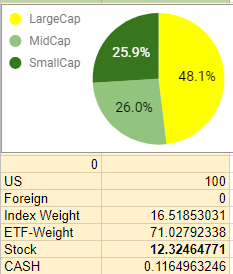I do that too...but I also log in and check because I want to catch stuff before it happens if possible. For example, if I logged into Vanguard and saw a pending transaction that wasn't mine I could try to do something then rather than finding out after the fact.
Or, the time I saw pending Amex transactions that showed someone using a card hundreds of miles away I was able to call Amex and immediately get that card number cancelled and get a replacement card (yes, I know I wouldn't be responsible for the charges but I feel it is better to solve things early to avoid potential future problems).

